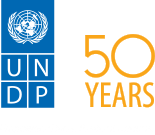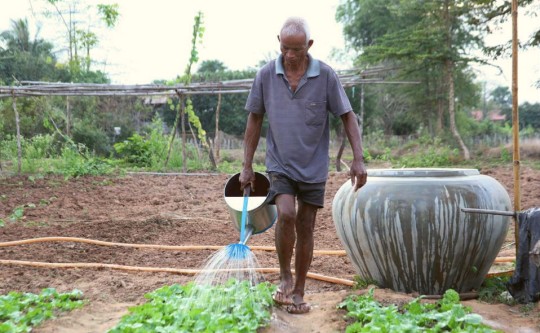Water and Oceans
Through the earth’s water cycle, the planet’s freshwater and oceans are inextricably linked. Ninety-seven percent of the earth’s water is in the ocean and the ocean supplies almost all the water that falls on land as rain and snow. Of the small portion that is fresh water; about a third is in groundwater and a mere 0.3 percent in accessible surface waters. Currently, 750 million people lack access to an improved water source and 2.5 billion lack access to basic sanitation. The MDG for drinking water was met in 2010, but with significant regional and national gaps and, if current trends continue, there will still be 2.4 billion people without access to an improved sanitation facility in 2015, falling short of the MDG sanitation target by over half a billion people. The impacts of low access to drinking water and sanitation represent a substantial drag on socioeconomic development in many countries.
Water-related crises were identified in a 2015 World Economic Forum survey as the top global risk in terms of impact. Over 1.7 billion people live in river basins where water use exceeds recharge, leading to the desiccation of rivers and depletion of groundwater. As countries develop and populations grow and urbanize, their demand for water is projected to increase by 55 percent in 2050 to provide energy, food and industrial goods. Two thirds of the world’s population could be living in water-stressed countries by 2025 if current consumption patterns continue. At the same time, climate change is anticipated to increase spatial and temporal water variability as well as extreme events such as floods and droughts that are already on the rise.
Globally, the market value of ocean resources and industries is estimated at $3 trillion per year or about 5 percent of global GDP, and an estimated 63 percent of global ‘ecosystem services’ are provided by marine and coastal systems. As much as 40 percent of the world oceans are considered as ‘heavily affected’ by human activities including anthropogenic climate change.
UNDP’s Response
These very close linkages and the significant socio-economic benefits provided by the earth’s freshwater and marine systems underscore the need to take adaptive, integrated, ecosystem-based approaches to the management of freshwater and ocean resources through more effective governance. Through a coordinated portfolio operating in over 100 countries, UNDP’s Water and Ocean Governance Programme applies such approaches at local, national, regional and global levels:
- UNDP assists countries to achieve equitable allocation, develop capacities and implement integrated water resources management through adaptive water governance to reduce poverty and vulnerability, sustain and enhance livelihoods and protect environmental resources.
- UNDP promotes and facilitates equitable access to water and sanitation services as a fundamental contribution to enhancing human development. UNDP works together with government, civil society, private sector and other development partners to bring about the necessary improvements in water governance to scale up water and sanitation services for the poor.
- UNDP plays an operational role in assisting countries to build cross-sectoral capacities and put in place effective and sound policies and institutions to manage and develop water and ocean resources in a sustainable way. UNDP contributes to the development and widespread delivery of training courses and toolkits through a variety of capacity building programmes.
Partners
UNDP is working in cooperation with other UN agencies, the Global Environment Facility, international financial institutions, regional organizations, NGOs, the private sector and others to improve water and ocean management and sustain livelihoods at local, national, regional and global scales through effective water and ocean governance.
Video
Andrew Hudson: Achieving the Water, Ocean and Related Sustainable Development Goals
In focus
From Coast to Coast
Celebrating 20 Years of Transboundary Management of Our Shared Oceans, was launched today during Oceans Day, being held on the sidelines of the 21st session of the Conference of the Parties (COP 21) to the UN Framework Convention on Climate Change (UNFCCC) in Paris.
UN World Water Development Report 2015: Water for a sustainable world
Water is at the core of sustainable development. Water resources, and the range of services they provide, underpin poverty reduction, economic growth and environmental sustainability.
Cap-Net UNDP: Towards implementation of the SDGs
Helping countries who need the most support to manage their water more efficiently and effectively. Watch our video to find out more about our work.
Our perspective
-

04 Nov 2015:Climate change, peace and security in the Arab region
-

10 Apr 2015:How can we achieve universal access to water and sanitation?
-

23 Mar 2015:Building resilience in the face of mounting risks in the Arab Region














